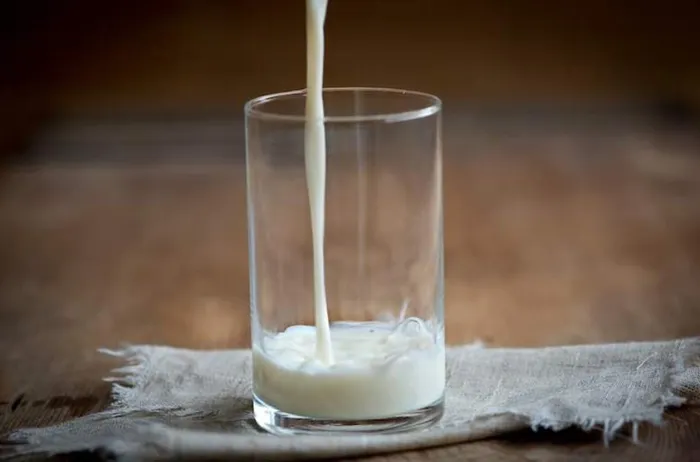
Nico Fouché, CEO of Milk SA, acknowledged that weak economic conditions and competition for disposable income had weighed on dairy demand, but noted a recovery since late 2023.
Image: Supplied
Milk South Africa (Milk SA) on Monday revealed in its annual report for 2024 that while the dairy industry has encountered significant challenges over the past year, it is also witnessing noteworthy growth.
Chairman of Milk SA, Dr Bonile Jack-Pama, said the sector plays a dual role in nourishing the country’s growing population and stimulating demand for dairy products.
“Our milk producers and manufacturers of dairy products in particular, are at the coalface of the enormous challenges that every new day brings in our beloved South Africa, especially in terms of infrastructure and government services - and an unfriendly business environment overall.”
He highlighted structural shifts in the sector over the past 25 years, noting that while the number of milk producers has dropped by 85% since 2000, output has risen by 76%.
“Larger economies of scale, higher output and a wider variety of products are an endless phenomenon in the secondary industry. This also emphasises the unforgiving macro environment and challenges around transformation,” he added.
Jack-Pama welcomed President Cyril Ramaphosa’s announcement at the Sustainable Infrastructure Development Symposium South Africa (SIDSSA) that more than R1 trillion would be invested in infrastructure over the next three years, saying this could support the industry’s growth.
He also praised Milk SA’s office for its administration and enforcement of statutory measures, saying the organisation had achieved significant progress with limited resources during the current regulatory cycle.
Nico Fouché, CEO of Milk SA, said the body had maintained efficiency in levy collection and in providing reliable industry data. He acknowledged that weak economic conditions and competition for disposable income had weighed on dairy demand, but noted a recovery since late 2023.
“Due to an inherently weak South African economy even before COVID-19 and increasing competition for the consumer’s disposable income, demand for dairy and other foodstuffs remained under pressure, but showed a marked recovery since the end of 2023,” Fouché said.
He said this caused unprocessed milk production to increase by 3.56% in 2024 year-on-year.
“However, the positive impact on levy income was significantly countered by the continued decline in imported dairy products. Although the 2024 levy income increased by 2.82% from 2023, it falls 1.50% short of budget. 2024 is the third consecutive year that income fell behind budget.”
Fouché added that expenditure of all projects was fairly in line with budget, with a few exceptions due to factors that delayed execution within the financial year.
“Unused project funds as at 31 December 2024 are refundable to Milk SA, unless a request for its employment in 2025 - for defined objectives - is approved by the board.”
Fouché said that the strategic direction of Milk SA requires a multi-disciplined approach, which enables Milk SA to unlock a wealth of support and co-operation from governmental, semi-governmental and private business sources.
On market trends, the report noted that sales of fresh milk, flavoured milk and yoghurt fell between July 2023 and June 2024, although this was an improvement compared with the previous reporting period when sales dropped across nearly all dairy categories.
“This is a marked improvement from the previous report ending March 2024 where eight of the nine products experienced reduced sales. However, the improved sales quantities are mostly of a marginal nature.”
The report added that the producer price inflation (PPI) for unprocessed milk experienced negative growth in August and September 2024 by 1.9% and 1.2%, respectively.
“This was the first negative growth in unprocessed milk prices since May 2019. The effect of this is that the level of the PPI for unprocessed milk is now in line with the PPI of dairy products.”
“The rate of change for the PPI for dairy products, other manufactured food products and the overall PPI for agriculture are all at significantly lower levels compared to 2023 and early 2024,” added the report.
BUSINESS REPORT